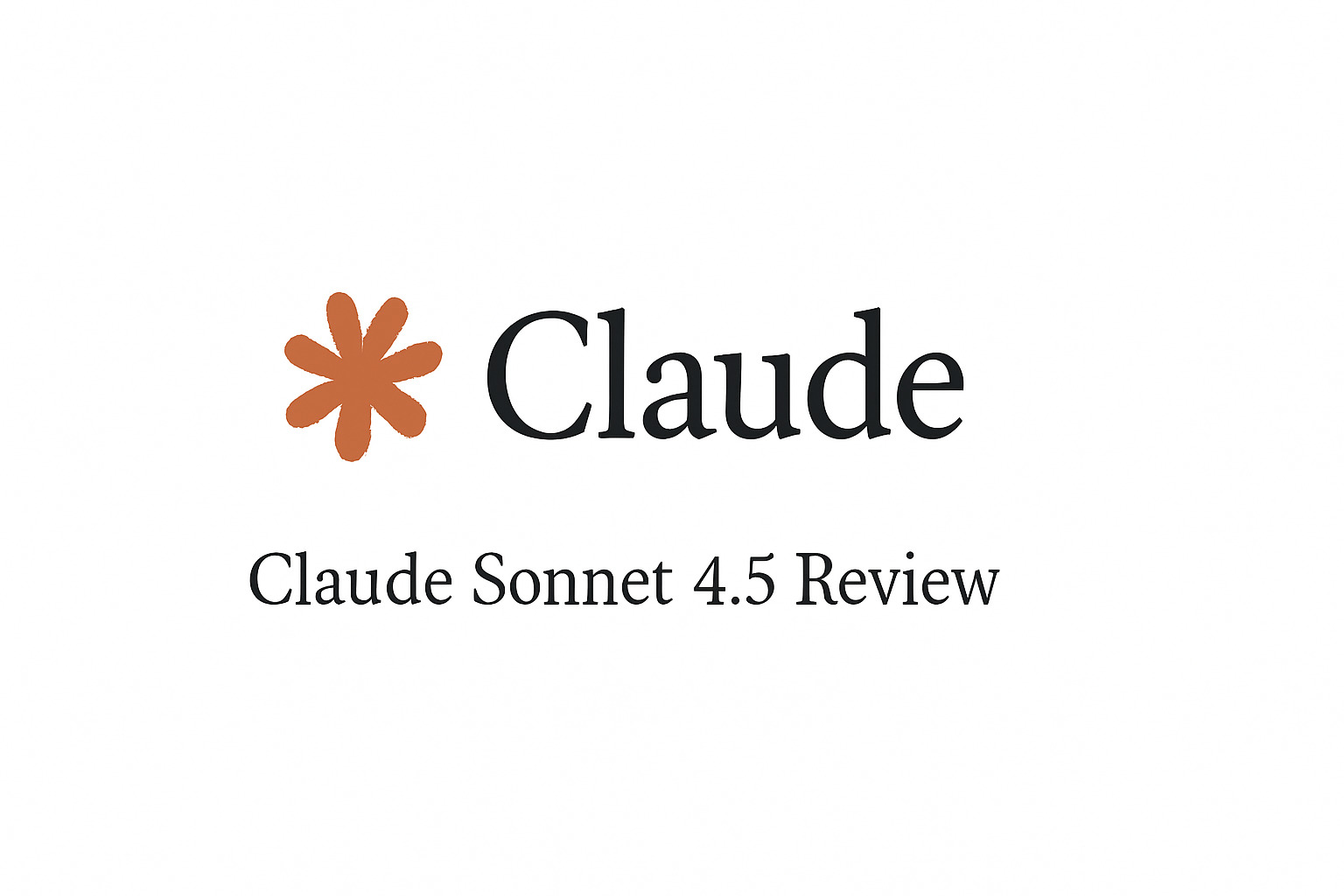

Look, I’ve been testing AI models for a while now, and I have to admit when Anthropic claimed Claude Sonnet 4.5 was “the best coding model in the world,” I rolled my eyes a bit. We’ve all heard these claims before, right?
But after spending the last few days putting this thing through its paces, I’m actually kind of blown away. And trust me, I don’t say that lightly.
Anthropic dropped Claude Sonnet 4.5 on September 29th, and honestly, the timing couldn’t be more interesting. We’re in this weird AI arms race where every company’s trying to one-up each other, and this release feels like Anthropic’s way of saying, “Yeah, we’re still here.”
The thing that caught my attention right away? This model can supposedly work autonomously for over 30 hours. Thirty. Hours. That’s not just impressive that’s kind of insane when you think about it.
I’m going to be real with you I was skeptical. But then I started testing it, and some of the results genuinely surprised me.
Here’s where things get interesting. On the SWE-bench Verified test (which basically measures how well AI can handle real-world software engineering tasks), Claude Sonnet 4.5 scored incredibly well. I’m talking about a model that’s supposedly outperforming even the more expensive Claude Opus 4.1.
What does this mean in practice? When I gave it complex coding tasks, it didn’t just spit out generic solutions. It actually understood context, maintained focus across multiple steps, and produced code that I could actually use without tons of debugging.
The speed is noticeable too. I compared it to GPT-5 Codex on a code review challenge, and Sonnet 4.5 wrapped it up in about two minutes. GPT-5 took around ten minutes for the same task. When you’re in the middle of work, that difference matters.
Remember when Claude Opus 4 launched back in May and could work autonomously for about seven hours? That was impressive then. But 30 hours? That’s a completely different ballgame.
I tested this with a multi-step project, and the model actually maintained coherence throughout. It didn’t get confused, didn’t lose track of what it was doing, and kept delivering consistent results. For anyone building AI agents or working on complex, long-running tasks, this is huge.
Okay, so here’s something that doesn’t get enough attention in the AI world safety. And honestly, it should, especially after some of the controversies we’ve seen with other AI companies recently.
Anthropic claims this is their safest AI model yet, and from what I’ve seen, they’re not just throwing that term around for marketing purposes. They’ve done extensive safety training to reduce what they call “concerning behaviors” stuff like deception, power-seeking, sycophancy (basically telling you what you want to hear), and encouraging delusional thinking.
The model also has better defenses against prompt injection attacks. If you don’t know what that is, it’s basically when someone tries to trick the AI into doing something malicious or exposing sensitive data. Given how much we’re starting to rely on AI, having better protections here is really important.
They’re releasing it under their AI Safety Level 3 framework, which means it has filters designed to prevent dangerous outputs related to chemical, biological, and nuclear weapons. Is it perfect? Probably not. But it’s a step in the right direction.
This is where my jaw actually dropped a bit. On OSWorld a benchmark that tests how well AI models handle real-world computer tasks Claude Sonnet 4.5 scored 61.4%. That’s a record. And get this: just four months ago, Claude Sonnet 4 was leading at 42.2%.
That’s a massive jump in a really short time.
I tried the Claude for Chrome extension (which is now available if you’re on the Max plan), and watching it navigate websites, fill out spreadsheets, and complete tasks was honestly pretty wild. It’s not perfect, and there are definitely moments where it stumbles, but the potential here is obvious.
One thing I appreciated? Anthropic didn’t jack up the prices with this release. It’s still $3 per million input tokens and $15 per million output tokens same as Claude Sonnet 4.
Is it more expensive than GPT-5? Yeah, GPT-5 is at $1.25/$10. But when you factor in the performance improvements and the autonomous work capabilities, the pricing feels reasonable for what you’re getting.
Anthropic didn’t just drop a new model and call it a day. They rolled out a bunch of improvements across their entire product lineup:
Claude Code got some serious upgrades: There’s now a checkpoints feature (which honestly should’ve been there from the start) that lets you save your progress and roll back if Claude writes some wonky code. The terminal interface got refreshed, and there’s now a native VS Code extension.
File creation is everywhere: Pro users can now create files (spreadsheets, slides, documents) directly in conversations. I’ve been using this for quick mockups and data analysis, and it’s actually really handy.
Claude Agent SDK: This is what they used to call the Claude Code SDK, but they rebranded it because surprise it’s useful for way more than just coding. If you’re building AI agents, this gives you the same infrastructure that powers their frontier products.
Let me tell you about some of the ways early users are actually using this thing:
Cursor users are loving it for solving complex problems. The developers behind Cursor specifically mentioned seeing state-of-the-art coding performance, especially on longer tasks.
GitHub Copilot integrated it almost immediately, with significant improvements in multi-step reasoning and code comprehension.
Security teams are seeing results: One company reported that their AI security agents reduced average vulnerability intake time by 44% while improving accuracy by 25%.
Legal and finance sectors are taking notice: For complex litigation tasks and financial analysis, early testers are reporting that it’s delivering work that requires less human review.
Look, I’m not going to sit here and tell you Claude Sonnet 4.5 is perfect or that it’s going to revolutionize everything overnight. That’s not how this works.
But here’s what I will say: if you’re doing any kind of serious coding work, building AI agents, or need an AI that can handle complex, multi-step tasks without losing the plot, this model is absolutely worth your attention.
The speed improvements are real. The safety enhancements are meaningful. And the ability to work autonomously for extended periods opens up use cases that just weren’t practical before.
Is it the “best coding model in the world” like Anthropic claims? Right now, based on the benchmarks and my own testing, it’s definitely in the running. But this space moves fast. Gemini 3 is supposedly coming soon, and who knows what OpenAI has cooking.
For now, though? Yeah, Claude Sonnet 4.5 is pretty damn impressive.
If you want to try Claude Sonnet 4.5, it’s available right now:
If you’re already a Claude user, it’s worth switching to Sonnet 4.5 as your default. The performance improvements are noticeable, and the pricing hasn’t changed.
I started this article skeptical, and I’m ending it genuinely impressed. Claude Sonnet 4.5 represents a meaningful step forward in AI capabilities, particularly for coding and autonomous work.
Is it perfect? No. Will it work for every use case? Probably not. But if you’re in the market for a powerful AI coding assistant that can handle complex, long-running tasks with improved safety measures, this is currently one of your best options.
The AI landscape is going to keep evolving rapidly, but for right now, Anthropic has delivered something worth paying attention to. And in a field full of overhyped announcements, that’s saying something.

